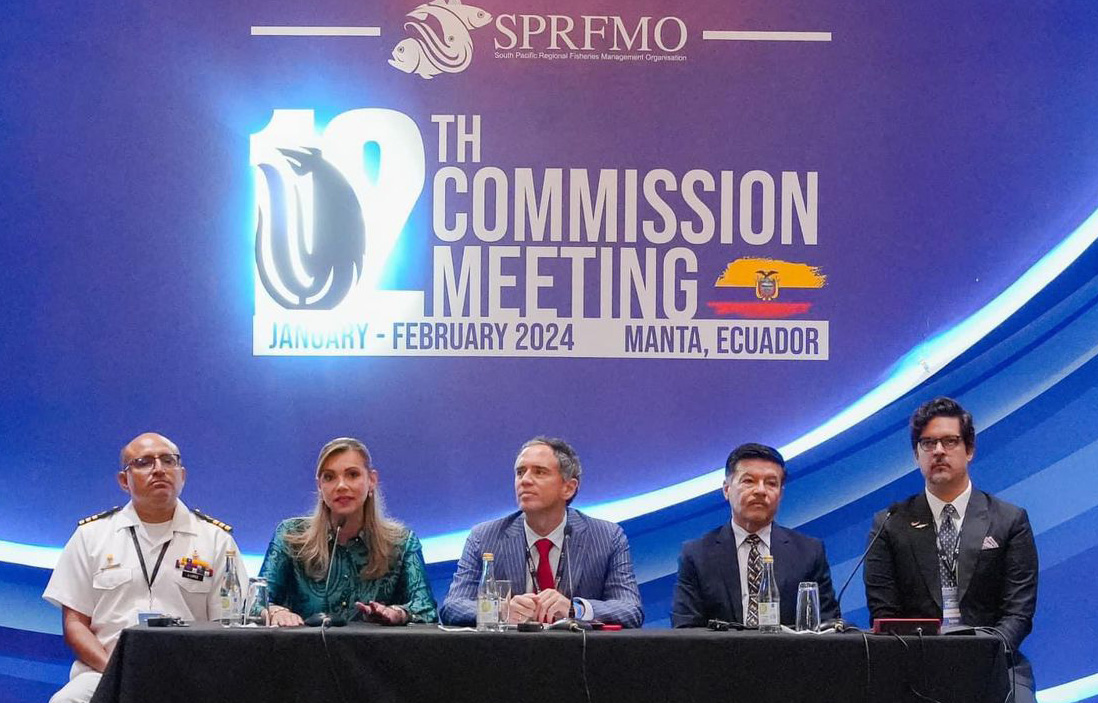The South Pacific Regional Fisheries Management Organization (SPRFMO) concluded its latest meeting on 2 February, during which labor and human rights at sea, transshipment monitoring, and observer coverage were addressed.
However, the regional fishery management organization failed to pass measures intended to increase the organization’s transparency.
SPRFMO manages fisheries in the Southern Pacific Ocean, including the region's jack mackerel and jumbo flying squid fisheries. At its annual meeting, proposals led by the meeting's host nation, Ecuador, as well as the U.S., New Zealand, and Australia on improving work conditions, eliminating human rights abuses, and establishing more stringent labor standards on fishing vessels operating in the South Pacific were approved.
“The decision encourages members to ratify international instruments and adopt national legislation to strengthen labor standards in the fisheries sector,” NOAA Fisheries, which advocated for the standards on behalf of the U.S., said in a release. “Members are also encouraged to implement measures to eliminate forced labor, ensure a safe working environment, and promote fair terms of employment for fishers.”
The Committee for the Sustainable Management of Jumbo Flying Squid (CALAMASUR) called the move to approve new labor standards an “unprecedented decision” that will help address reported human rights abuses on distant-water fishing fleets.
The South Pacific's distant-water squid-fishing vessels operated by China were identified by a recent Outlaw Ocean Project report as employing forced labor and engaging in illegal, unreported, and unregulated (IUU) fishing.
Despite progress on human and labor rights, CALAMASUR strongly criticized what it called “unexpected resistance” to a measure proposing the gradual implementation of introducing Spanish as a primary language for future SPRFMO meetings. According to CALAMASUR, China opposed the move, which “surprised representatives from Chile, Ecuador, and Peru.”
CALAMASUR President Alfonso Miranda called the decision an “inadmissible act of arrogance,” according to a release from the Sustainable Fisheries Partnership (SFP). Pascual Aguilera, the head of the National Coordinator of Squid Fishermen of Chile, said the decision will make negotiations more difficult for the majority of SPRFMO members.
“It is not possible that, [since] squid [is] a resource that essentially [solely resides] on the coast of Spanish-speaking countries, the forum regulating this fishery is conducted in English,” Aguilera said. “This undoubtedly puts us at a disadvantage when we have to defend our positions in discussions.”
Separately, a propsal Ecuador and supported by the U.S. was adopted creating a working group to establish electronic monitoring standards. And a proposal launched by the U.S. and co-sponsored by New Zealand was approved that will result in 100 percent observer coverage for transshipment, in an effort to combat IUU activities.
“I am extremely pleased that the commission was able to reach an agreement on these significant improvements that continue to increase our capacity to monitor and regulate the activities of these vessels,” NOAA Fisheries Director of the Office of International Affairs, Trade, and Commerce Alexa Cole said.
However, a move to increase observer coverage to 10 percent of fishing days was watered down to ...
Photo courtesy of the Ecuadorian Navy








